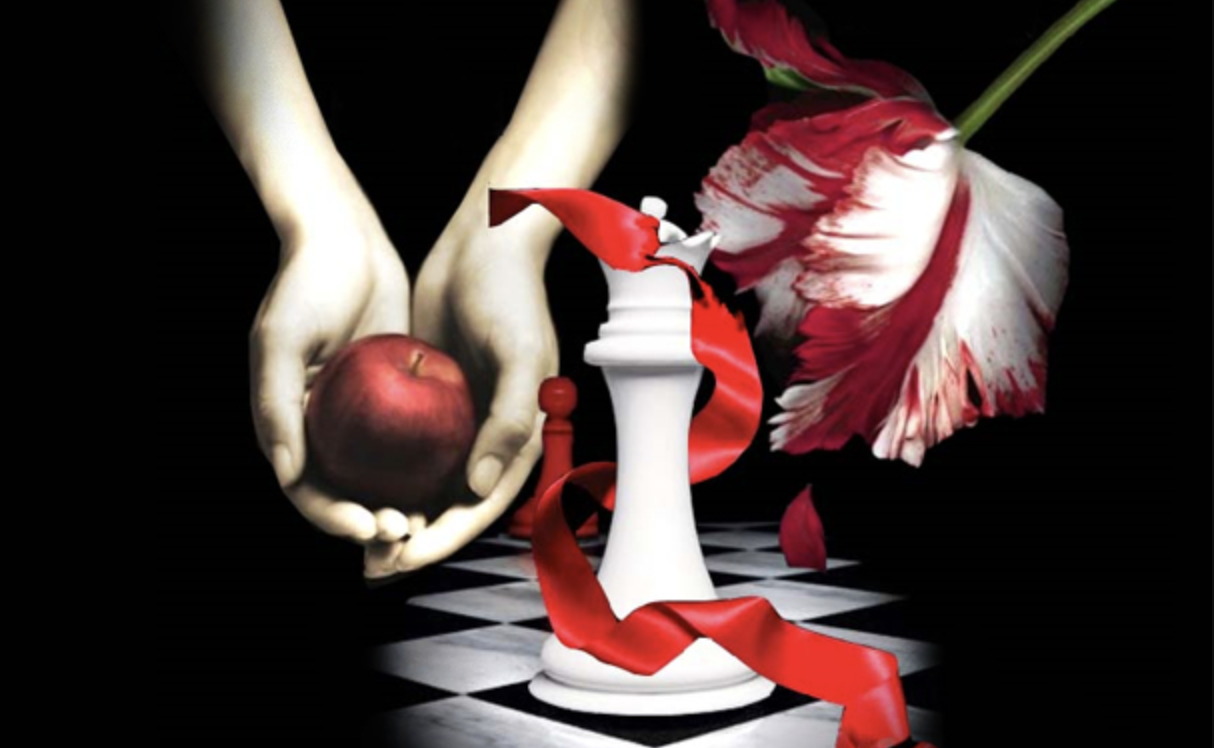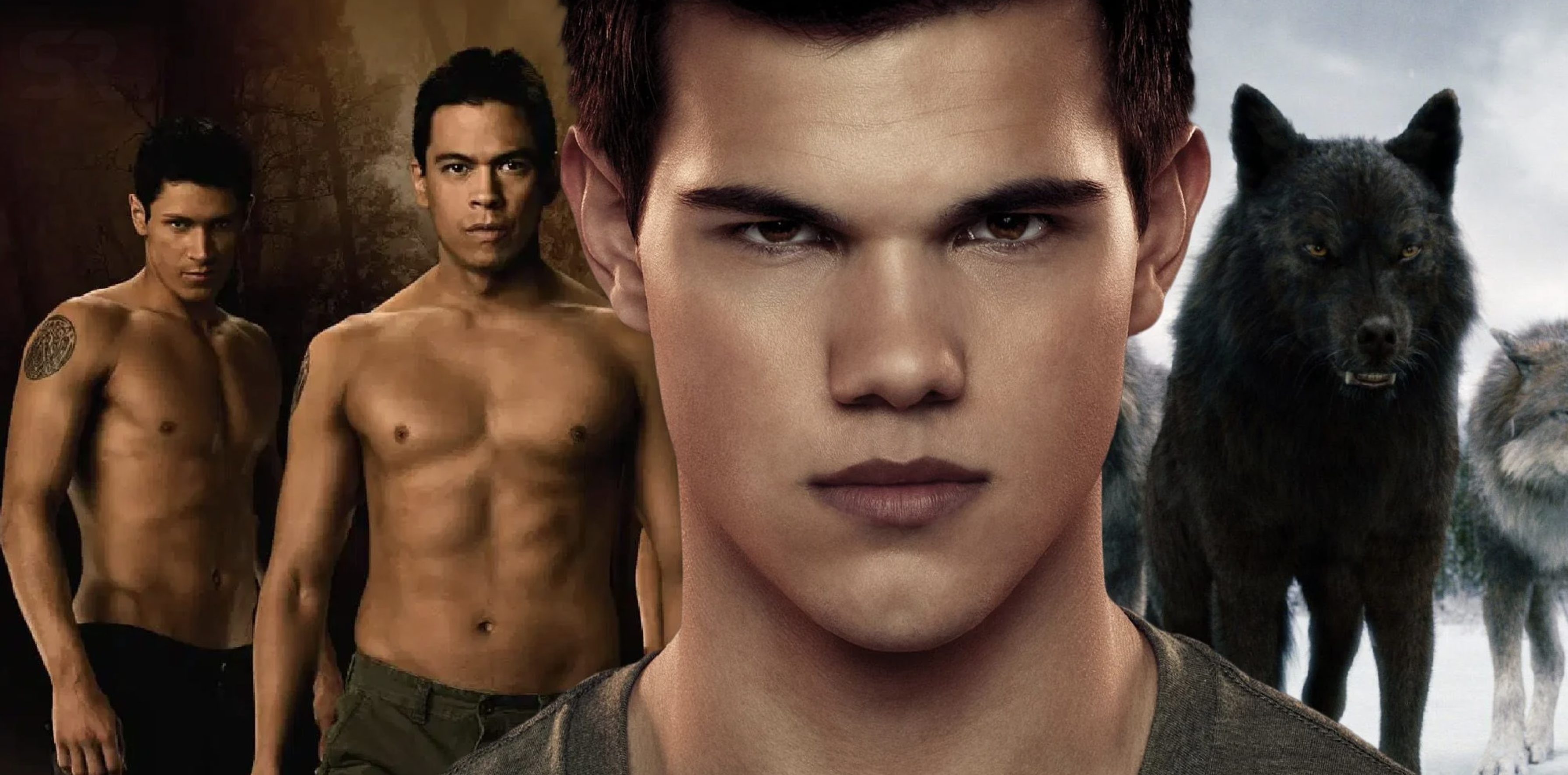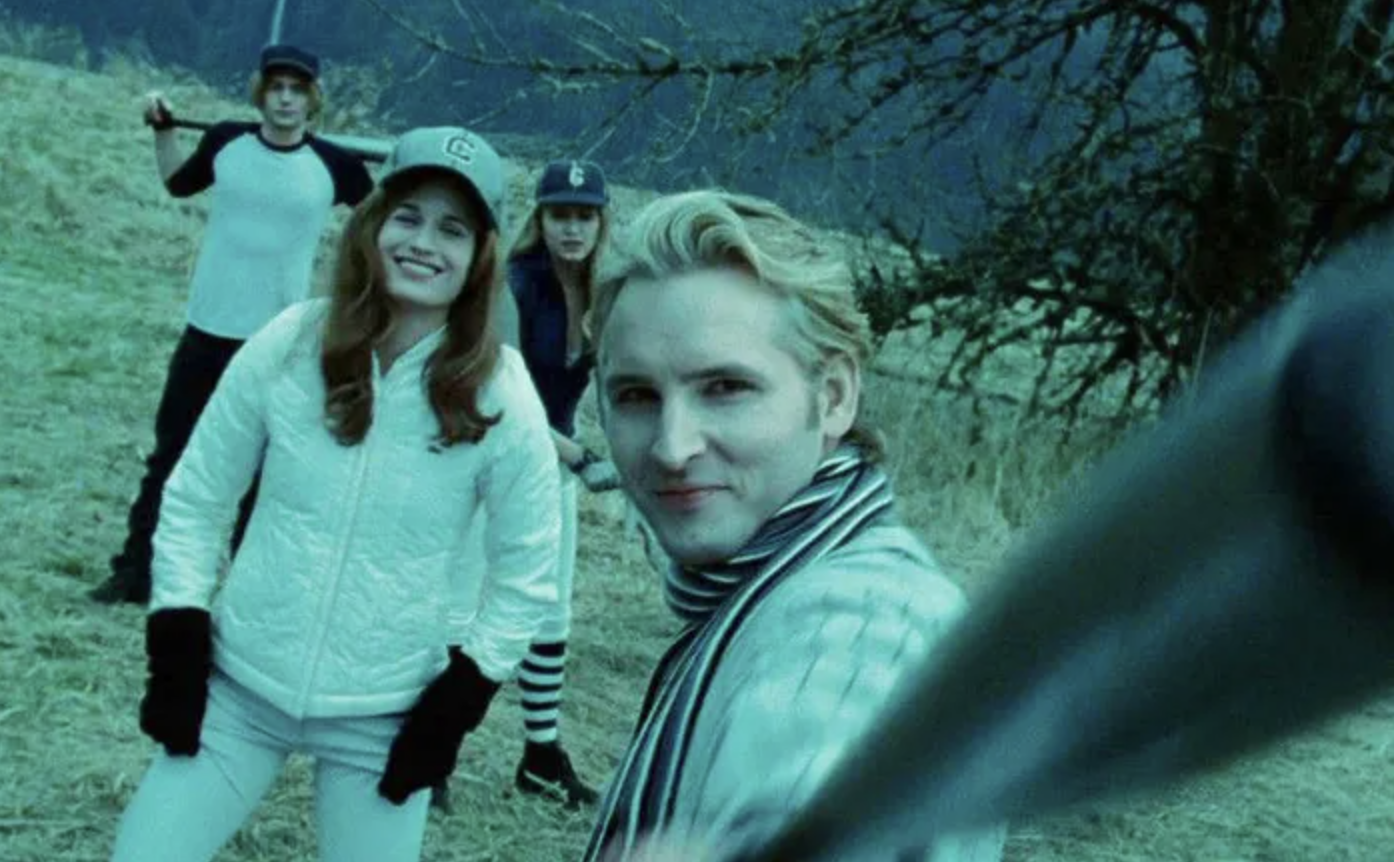As the world gears up for Halloween Marina takes a look at an older tween series with fresh eyes, reflecting on the merits, flaws and consequences of the Twilight Saga. Who said Y.A. romance films were dead?

First, some common questions on The Twilight Saga: Why does the blue filter disappear after one movie? Who did the CGI for baby Renesmee, and can I fire them? Who even likes this? Birther of such nightmare spawn as the Fifty Shades trilogy and unabashed romanticizer of emotional abuse, praising the trilogy as good filmmaking would be a real stretch. On top of everything, the series sports a plot-line that snags and loops and still ends flat.
But over the last year or so, as related content began to flood social media feeds, true responses to these comically unanswerable questions began to formulate in my head—save for the second. Boosted by the series’ reintroduction to Netflix’s roster in July, it’s cool to care about Twilight again. TikTok fame can be sourced through its name—ambient scene-scapes of a rainy window captioned simply, “Bella Swan”; mimicry of the same character’s overdramatized stoicism as performed by a 30-something user with a man-bun. Today’s answer to “Who even likes this?”: Everyone. If you missed the Twilight train in 2008, now’s your chance.

I’ll proudly admit that prior to this COVID-induced uptick, I’d turned to Twilight as an occasional source of comfort since I first read the books in middle school. I’m from Western Washington; to zone out for a 2-hour chunk, hear boots on a rain-soaked forest floor, and revel in the feeling of dusk at 4 PM is a blessing. My heart opens, forgets even the definition of constriction. Somehow, a film as depraved and empty as Twilight provided me the perfect space to fill with home. It’s a portal to an extreme version of my hometown. Bella’s Forks lends itself to a heavy fantasy element bordering stupidity; it could never exist, but somehow the ambience plucked from lives like mine pushes it into the realm of reality. I’m given renewed confirmation of who I am—escape into an elevated self.
Similarly, last year’s COVID-19 lockdown pushed others to seek escapism at an elevated level. To everyone on this planet, save for a limited population nestled between stretches of national park, Forks is just short of an alien world. Like some Eden overlapping heaven and hell, there exists colossal moss-bearded evergreens, boundless coastlines pounded by roaring tide, vampires whose sole evolutionary purpose is to be inhumanly attractive—oh, wait. Still wonder why Twilight was the perfect escape?

At times, the films also present mature themes, another facet that intrigued me as a young teen. Twilight questions the merits of love and sows genuine sadness. When Bella must weigh protecting herself or her father, she chooses herself, a decision I recoiled at. This cemented family loyalty as one of my core values. It shakes me every time: she spits the divorce he never healed from in his face, re-traumatizing someone who’s only ever loved her unselfishly. In the end, he is protected by other Cullens despite her choice, which prompts another reflection on the deep unbelievability of the series. Real life isn’t a collage of perfectly plotted ideals with manufactured adrenaline checks—with this departure the viewer is forced to appreciate the spontaneous, organismal fear in their own life. Additionally, when antagonist Victoria tells Riley she never loved him, leaving him to die, the story admits very honestly that even the most beautiful people use and abuse and discard each other.
Okay, yes—Twilight can be racially insensitive, treating Quileute culture like a quirky Christmas ornament on a white American tree. Not only is the face of the Quileute tribe played by an actor who is 99.9999% European, but the film’s supporting Asian character is portrayed as a nerd with a reasonless desire for the white female lead, a lead who in turn tolerates abuse because she herself has a reasonless obsession with a rich white guy. The series’ overwhelming popularity—see Twilight moms and the surge in the paranormal genre—often causes the industry and audience at large to excuse its sins. I will never defend this, but I’m glad the faults of the series started a conversation, one that allowed the stone of change to begin grinding forward in the romance industry. The genre is still overwhelming cis, straight, and white, yet its narratives still dare to tout the concept of being “not like other girls.”

However, it gives me hope that with each new aggression in the industry there is usually an opposing riptide of backlash. Filmmakers are revolutionizing the stories that make it past the drafting boards, and today’s American film casts usually include at least one token person of color—small victory though that may be. As a time capsule from the 2000s, Twilight and all of its problematic elements exemplify how rapidly we are filtering through changes. We can look to the franchise as a good bad example. It’s disappointing, uncomfortable. Let’s do better. We are doing better.
Aside from every important conversation and artistic disaster, I know above all that Twilight will always deliver a laugh. The actors make choices so ridiculous that they actually seem realistic. We’re able to mock this foolish girl and her foolish emo boyfriend whilst slipping under the pleasant numb of vicarious hedonism. When watching Twilight, your only concern is if your boyfriend’s sexy sister-slash-ex-fiancée is willing to protect you, and how much praise will be lauded upon you for caring about your dad. Sounds nice, right? Furthermore, the blue filter on the first film disappears because said film’s creation was experimental, alive, allowing for suspension of disbelief as improvisational theater does. As visuals evolve and castings are switched in the middle of the series, one begins to realize that Twilight doesn’t even care about Twilight, either.

So, start treating Twilight as a comedy. When the characters do visit Seattle, my hometown, I’m able to point smugly at every inaccuracy while still acknowledging that accuracy isn’t the point. Twilight is all rain and Tumblr edge and hot characters who aren’t really hot and red pickup truck facades that, if actually driven, would break. Twilight is peak comedy, some blurrily self-aware parody-within-a-dream that strikes you with mature themes when you least expect it, and I love it. You should too.

Recent Comments